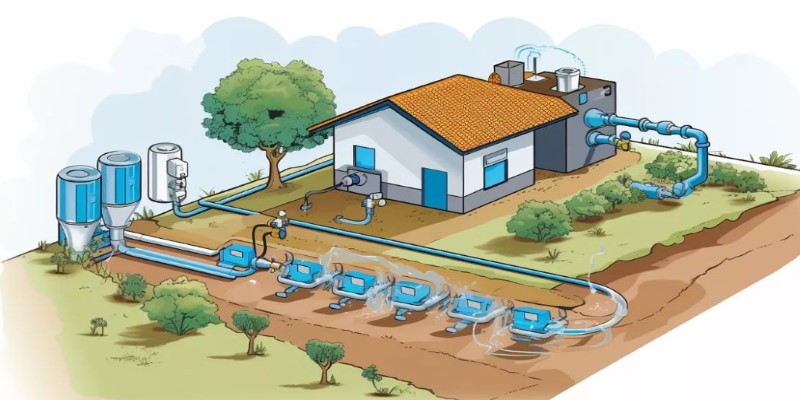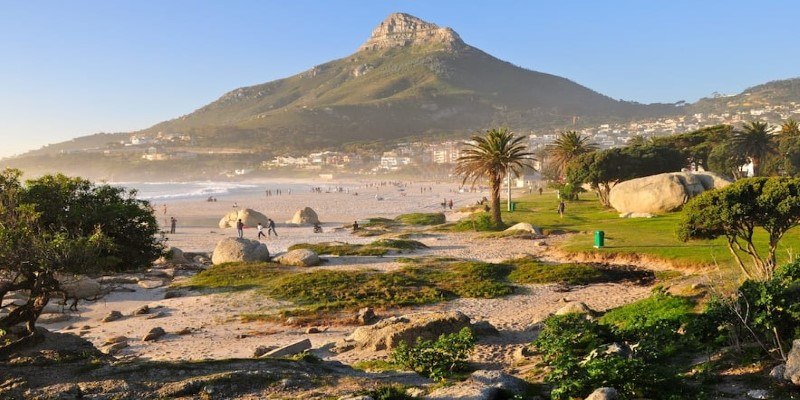Cape Town, known for its stunning landscapes and vibrant culture, has faced a severe drought in recent years. This drought has affected not only the residents but also visitors who come to explore the city and its surroundings.
Understanding the Cape Town drought is essential for anyone planning to visit, as it influences everything from water availability to local tourism. This guide will explain the drought's background, its causes, the impact on the community and tourism, and what visitors can do to help during their stay.
The Cape Town drought, a significant challenge since 2015, peaked in 2017 and 2018, leading to a water crisis. Once known for abundant water, the city faced declining reservoir levels, prompting strict conservation measures. Key causes include climate change, population growth, and mismanagement of water resources.
Climate change significantly impacts the drought in Cape Town, leading to warmer temperatures and unpredictable rainfall. This results in longer dry spells and decreased annual rainfall in the Western Cape, making droughts more frequent and severe as global temperatures continue to rise.

Cape Town's population has surged to nearly 4.7 million by 2023, increasing water demand and straining limited resources. The citys infrastructure struggles to meet this demand, resulting in over-reliance on groundwater and unsustainable sources, putting pressure on water supplies for daily living and tourism.
The history of water management in Cape Town reveals the roots of the current crisis. Previously reliant on dams and rivers, the city failed to invest in sustainable practices. Poor decisions regarding resource allocation have left Cape Town vulnerable to the impacts of climate change and growing population pressures.
The drought has far-reaching consequences for the people of Cape Town. The most immediate effect has been on the water supply. Residents faced water restrictions, with limits on daily water usage. Many turned to alternative sources, like rainwater harvesting and boreholes, to meet their needs. This shift created a sense of urgency in the community to adopt sustainable practices, raising awareness about water conservation.
The drought also has significant economic implications. The agriculture sector, crucial for local food supply and employment, has been severely impacted. Crop failures and livestock losses led to increased food prices and job losses, affecting both farmers and consumers. Furthermore, tourism, a major driver of Cape Towns economy, suffered as visitors became wary of the citys water situation. Attractions that rely on water, such as beaches and parks, experienced decreased foot traffic, impacting local businesses.
The drought has altered social dynamics within the community. Residents have come together in various initiatives to promote water conservation and sustainability. Many community organizations have emerged, focusing on educating locals and visitors about water-saving techniques. This collective effort fosters a sense of community and resilience, demonstrating how people can unite in the face of adversity.
Tourism is one of Cape Town's largest industries, attracting millions of visitors each year. However, the drought has influenced how tourists experience the city. Some popular attractions faced water restrictions, and the overall perception of Cape Town changed as visitors became more aware of the water crisis.
Many tourists were initially concerned about traveling to a city facing a drought. Reports of low reservoir levels and water usage restrictions painted a bleak picture. However, many visitors still chose to come, drawn by the citys natural beauty and rich culture. This paradox highlights the importance of understanding the drought and its implications, allowing tourists to appreciate Cape Town while being mindful of their water consumption.
In response to the drought, the tourism industry has shifted towards more sustainable practices. Hotels and restaurants have implemented water-saving measures, such as reusing greywater and installing low-flow fixtures. Tour operators now emphasize responsible tourism, encouraging visitors to respect local resources. This shift not only helps alleviate pressure on the water supply but also enhances the visitor experience by promoting a deeper understanding of local challenges.
Visitors to Cape Town can play an active role in helping to mitigate the impact of the drought. Here are some practical steps you can take:
Limit water usage during your stay. Simple actions, like taking shorter showers, turning off taps while brushing your teeth, and reusing towels in hotels, can make a big difference. Awareness of water consumption helps create a culture of conservation.

Many organizations and projects in Cape Town focus on water conservation and sustainability. Consider participating in or donating to these initiatives, which help educate residents and tourists about responsible water use. Engaging with local efforts can also enhance your travel experience.
Look for hotels and lodges that prioritize sustainability and water conservation. Many eco-friendly accommodations implement water-saving measures and use renewable resources. Staying at these places not only reduces your environmental impact but also supports businesses committed to sustainable practices.
Cape Town offers numerous activities that promote awareness of the water crisis. Consider joining guided tours that focus on sustainability or visiting community projects addressing water issues. These experiences not only enrich your understanding but also contribute positively to the local community.
The Cape Town drought is a complex issue with significant implications for residents and visitors alike. Understanding its causes and impacts can help tourists make informed decisions and contribute positively to the local community.
By being mindful of water use and supporting sustainable practices, visitors can enjoy all that Cape Town has to offer while helping to preserve this beautiful city for future generations. The resilience of the people of Cape Town, combined with the commitment to sustainable practices, offers hope for a brighter, more water-secure future.

By Susan Kelly/Oct 20, 2024

By Alison Perry/Oct 15, 2024

By Georgia Vincent/Sep 27, 2024

By Jennifer Redmond/Sep 27, 2024

By Martina Wlison/Sep 20, 2024

By Mason Garvey/Sep 27, 2024

By Madison Evans/Sep 20, 2024

By Jennifer Redmond/Oct 17, 2024

By Gabrielle Bennett /Sep 27, 2024

By Darnell Malan/Oct 31, 2024

By Darnell Malan/Oct 10, 2024

By Susan Kelly/Oct 03, 2024